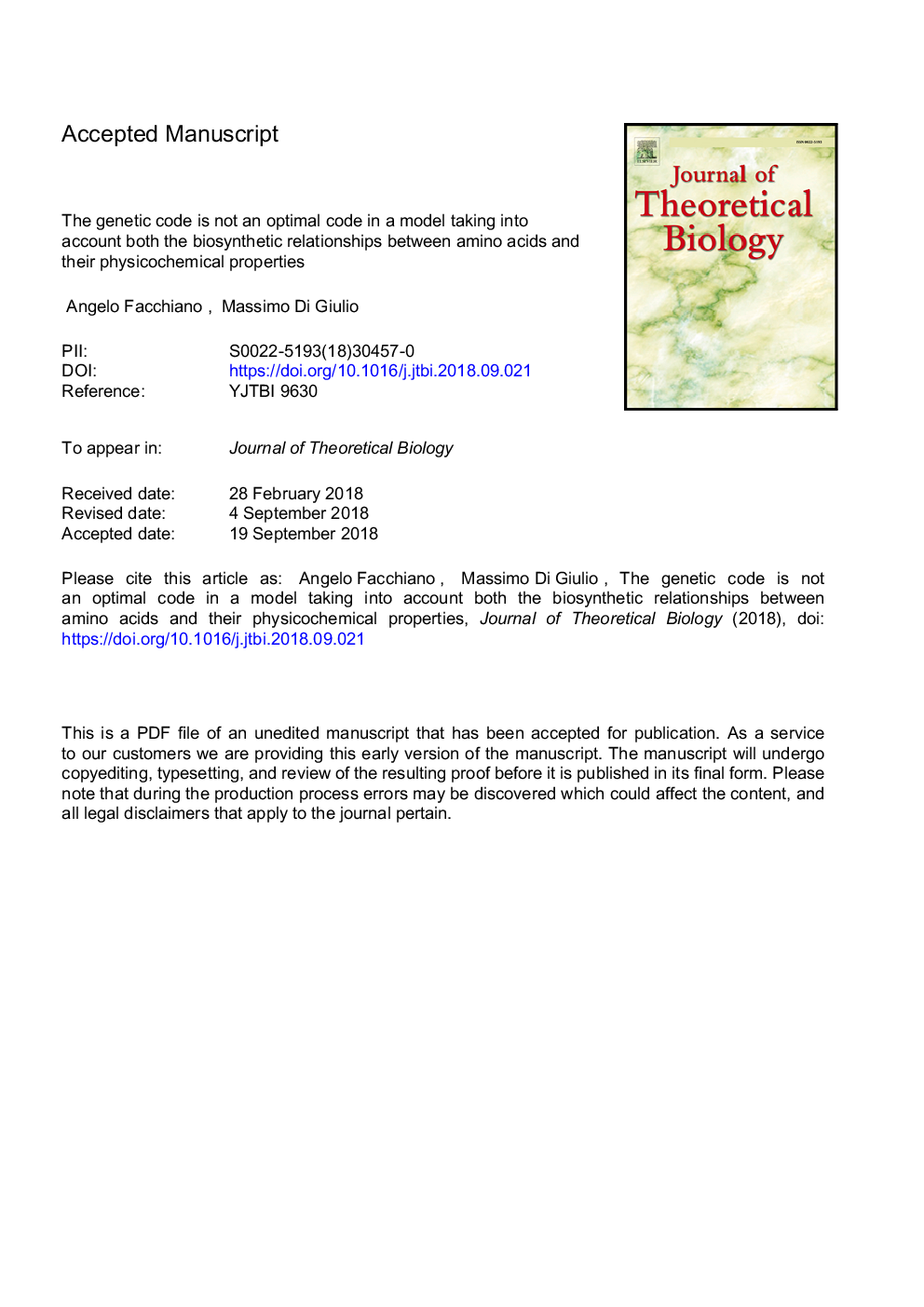| Article ID | Journal | Published Year | Pages | File Type |
|---|---|---|---|---|
| 11017733 | Journal of Theoretical Biology | 2018 | 24 Pages |
Abstract
The results maintain the hypothesis that the genetic code organization is not optimal even in these subsets containing a very limited number of elements. That is to say, the genetic code is not a local or absolute minimum. For instance, only a few amino acid exchanges would have rendered the genetic code more optimized or even they would have transformed it into a completely optimized code. This would imply that the evolution of the genetic code, not considering these possibilities, has evolved through different pathways from the one that was oriented to a high optimization. Moreover, the combination of polarity and the molecular volume of amino acids results to have been more significant than when the only polarity is considered, in conditioning the evolution of the genetic code contrary to that reported in the literature. However, this is not such to produce an organization of the genetic code optimized if referred to these two properties. Nevertheless, these two properties being crucial in defining the structure of proteins, they would have affected the origin of the genetic code by means of the selective pressure directed to improve the ancestral enzymatic catalysis. As a whole these observations contradict the predictions of the physicochemical theories of the origin of the genetic code because the non-optimization of the genetic code organization - even in subsets of codes with a very low element number - would deny the absolute importance of the physicochemical properties of amino acids in its structuration, which, on the contrary, is expected from these theories. Conversely, these same observations would be in perfect agreement with the coevolution theory of the origin of the genetic code because they would explain both the not fundamental role of the physicochemical properties in organizing the genetic code and the importance of these properties in the evolution of coded catalysis - that is to say, of the genetic code - both predicted by this last theory.
Related Topics
Life Sciences
Agricultural and Biological Sciences
Agricultural and Biological Sciences (General)
Authors
Angelo Facchiano, Massimo Di Giulio,
